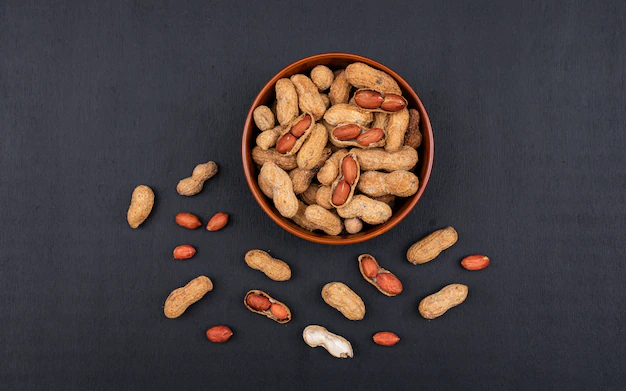Peanuts: A Heart-Heathy Snack

Peanuts are a popular snack food enjoyed by many. They are not only delicious but also have several health benefits. Here are some of the heart-healthy benefits of peanuts:
- Rich in healthy fats: Peanuts contain mostly unsaturated fats, which can help reduce bad cholesterol levels and improve overall heart health. A serving of peanuts (about 28 grams or 1 ounce) contains about 14 grams of fat, most of which are healthy monounsaturated and polyunsaturated fats.
- High in protein: Peanuts are also an excellent source of plant-based protein, with about 7 grams of protein per serving. Protein is important for maintaining and building muscle mass, which can help support heart health.
- Good source of fiber: Peanuts are a good source of fiber, which can help lower cholesterol levels and support healthy digestion. A serving of peanuts contains about 2.6 grams of fiber.
- Contains vitamins and minerals: Peanuts contain several important vitamins and minerals, including vitamin E, magnesium, and potassium. These nutrients are important for maintaining heart health and overall wellbeing.
- May help reduce the risk of heart disease: Studies have shown that including peanuts in your diet may help reduce the risk of heart disease. This may be due to the healthy fats, protein, and fiber found in peanuts.
It is important to note that peanuts are high in calories, so it is important to consume them in moderation. A serving size of peanuts is about 28 grams or 1 ounce. It is also important to choose unsalted peanuts or peanut butter to avoid consuming excessive amounts of sodium, which can contribute to high blood pressure and other health issues.
